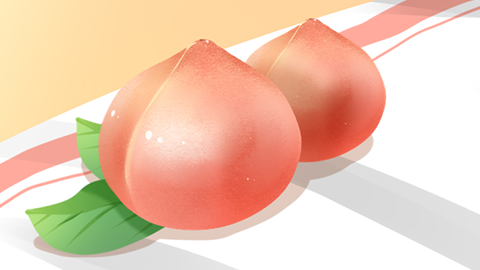What is the calorie content of peaches?
Generally, peaches have a low caloric content, with approximately 42 kcal per 100 grams of edible portion. A detailed analysis is as follows:

When comparing peaches to other common fruits, their caloric value is significantly lower than that of fruits such as durian and lychee, as well as apples. This is mainly because peaches have a high water content, moderate carbohydrates, and very low levels of fat and protein, making them a low-calorie, high-water-content fruit suitable as a snack during weight-loss periods.
There are slight differences in calorie content among different peach varieties, but overall, the levels remain low. For example, honey peaches may have slightly fewer calories due to their higher juice content, while crisp peaches contain approximately 45 kcal per 100 grams. These differences are primarily related to variations in water and sugar content. Additionally, the way peaches are consumed can also affect calorie intake. Eating them raw adds almost no extra calories, but processing them into peach jam or dried peaches increases the caloric content due to water removal or added sugar, which requires special attention.
When consuming peaches, it's important to control portion sizes. Although they are low in calories, excessive consumption may still lead to exceeding total daily caloric limits. Processed peach products tend to be higher in calories and should be avoided as much as possible during weight loss. When selecting peaches, fresh ripe fruits are preferable to ensure nutritional quality and avoid gastrointestinal irritation caused by tannic acid present in unripe fruits.








